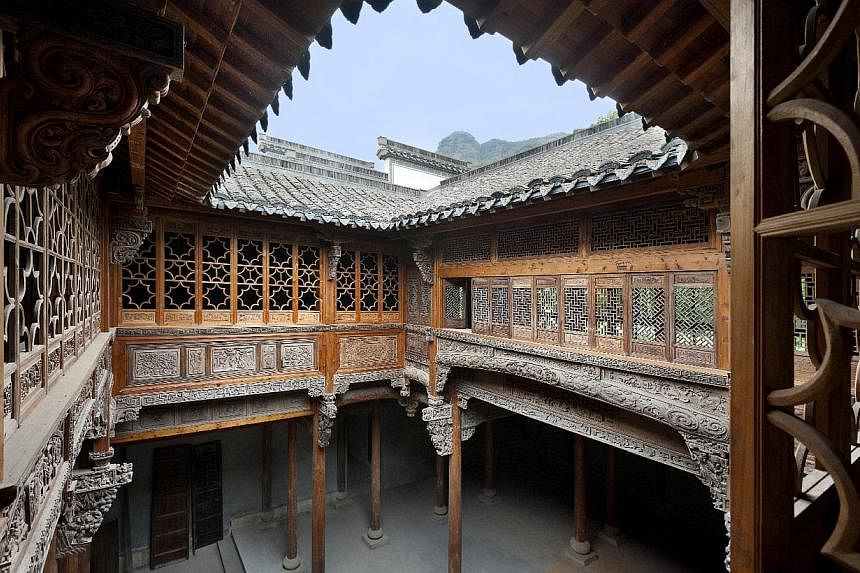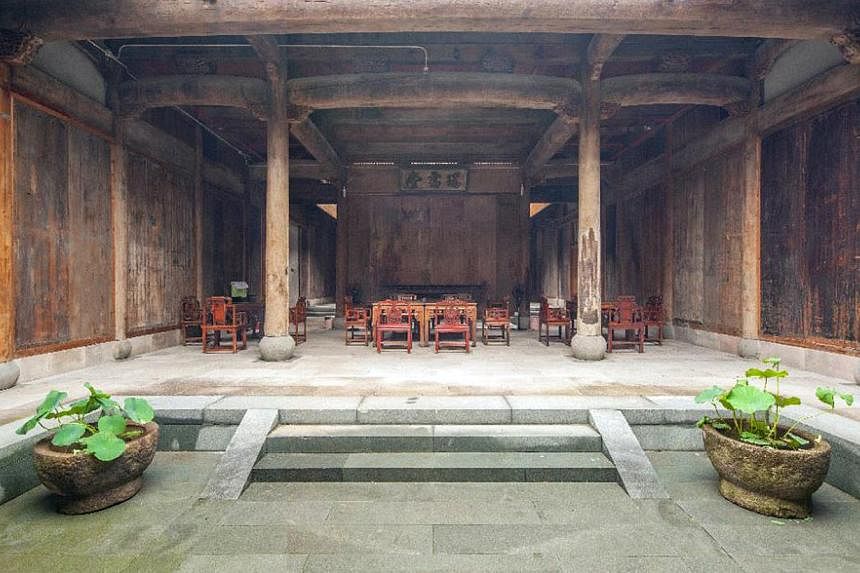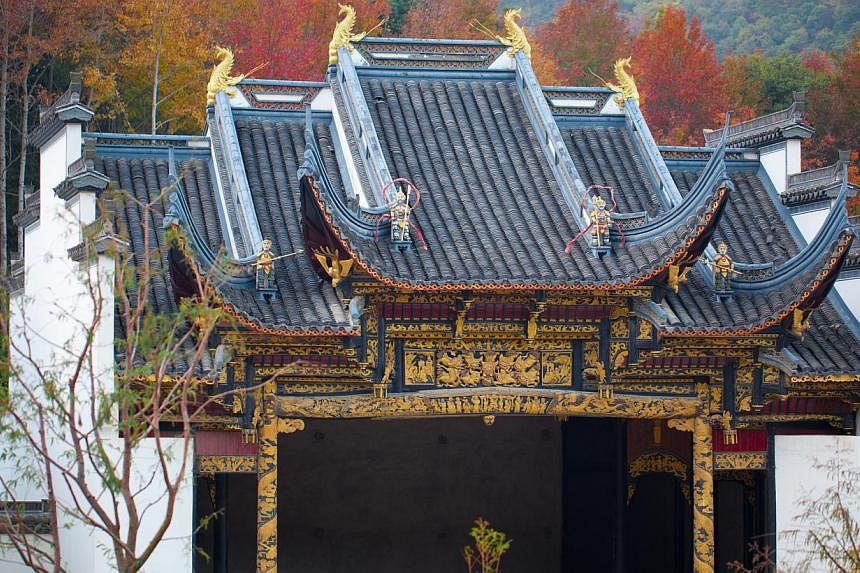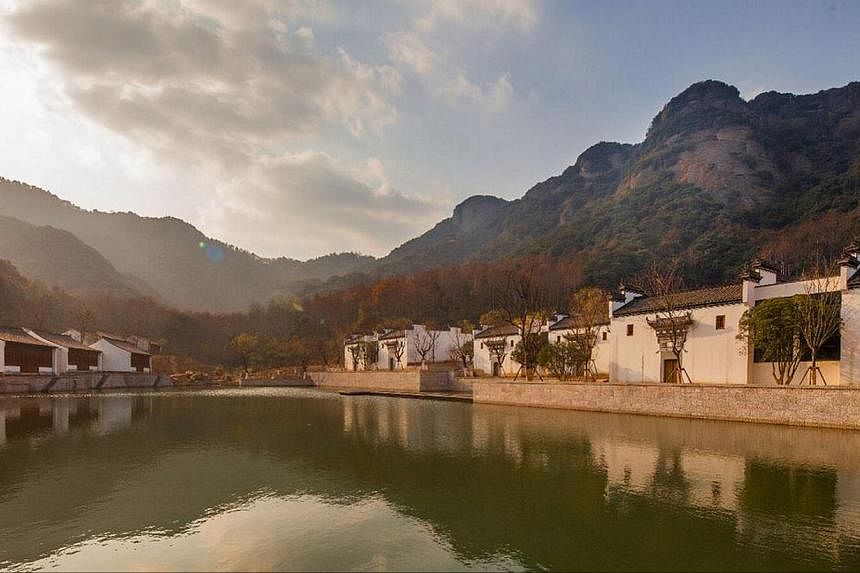BEIJING - Some people collect paintings, others buy sculptures and antique furniture. Mr Qin Tongqian does all that and more: He buys entire old houses, some of them built in ancient China hundreds of years ago.
The 52-year-old businessman is passionate about these old buildings and boasts a collection of more than 400 wooden structures. He does not resell them. Instead, he restores the houses to their former glory.
"They are my source of pain and happiness," Mr Qing says of the ancient houses, many of which are in Shaoxing, a city in the eastern Zhejiang province where he spent his childhood.
For years, Mr Qin's family and friends thought he was "crazy" as he went about buying dilapidated houses, most of which were sold by the original owners who wanted to move to new houses in the 1990s.
Among Mr Qin's collection are ancestral temples and opera houses.
"Back then, people couldn't understand my passion at all," says Mr Qin, who describes himself as a strong supporter of traditional Chinese culture. He says that money from his regular business, a Shanghai-based real estate company, was invested in buying the ancient houses.
During his travels to rural areas, he sometimes had to climb mountains to view an ancient temple deep in the valley.
"It's true that ancient houses are not comfortable enough to live in. But we can transform their inner environment to meet modern living standards instead of dismantling them altogether," says Mr Qin, whose office and house are both designed in the traditional Chinese style. He enjoys being alone and listening to soothing music while making a pot of tea.
Old Chinese architecture is a mix of philosophy, culture and craftsmanship, especially those built in eastern Anhui and Zhejiang provinces, where many rich people and senior officials lived during the Ming (1368-1644) and Qing (1644-1911) dynasties.
Mr Qin loves the legendary stories, fairy tales and scenes of daily life engraved on pillars, corbels, windows and doors of the antique houses.
It took about four years to restore 100 of the ancient houses in Mr Qin's possession.
He is converting some of them into hotels where people can experience traditional Chinese architecture.
He says he will also open his houses to the public for free in the near future to promote the understanding of traditional Chinese architecture of the Ming and Qing dynasties.
"I want people to know the treasures passed down from our ancestors, the craftsmanship, the culture and the traditional relationships between family members," he says.
CHINA DAILY/ASIA NEWS NETWORK




